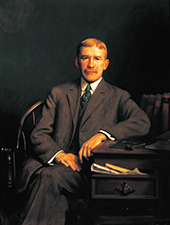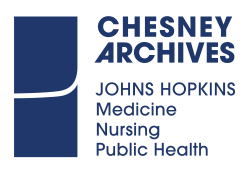Henry M. Thomas, Sr., Collection

Henry M. Thomas Sr.
by Thomas Carter
Collection Overview
Creator: Thomas, Henry M. Sr. (1861-1925)
Collection Date: 1889-1925
Extent: 5 cubic feet
Biography
Henry Thomas, Sr. was born in Baltimore. He studied as an undergraduate at Haverford College and The Johns Hopkins University. He attended medical school at the University of Maryland, where he received his M.D. in 1885. At the University of Maryland, Thomas became interested in neurology while under the guidance of Francis Miles, professor of anatomy, physiology, and diseases of the nervous system. After graduation, he continued his study of neurology in Heidelberg under Wilhelm Erb, the great master of clinical neurology, and Karl Gegenbauer, an eminent anatomist. He was also influenced by the work of the neurological group at Queen’s Square Hospital in London, especially by the studies of Sir William R. Gowers and Victor Horsley. When Thomas returned to Baltimore in 1887, the construction of The Johns Hopkins Hospital had not yet been completed, but he joined a group including William T. Councilman, William S. Halsted, and Franklin P. Mall, working under William H. Welch in the pathological laboratory on the hospital’s grounds. His real opportunity for clinical experience came when William Osler placed him in charge of the neurological division of the outpatient department in the newly completed hospital. In 1896, Thomas became the first clinical professor of neurology at the Johns Hopkins University School of Medicine, a position he held for the next thirty years. Thomas conducted major studies on congenital facial diplegia, obstetrical paralysis, the causes of various peripheral neuropathies, and thrombosis of the posterior inferior cerebellar artery. His chief scientific contributions were systematic pathological studies of the cerebral blood vessels. In 1911, he was elected president of the American Neurological Association.
Scope and Content
The Henry M. Thomas, Sr., Collection spans his entire career at Johns Hopkins. It contains biographical materials, professional correspondence, patient histories, scientific notes, and reprints. The collection documents Thomas’ career on the faculty of Johns Hopkins University as a neurologist. Much of the patient histories are related to epilepsy.
